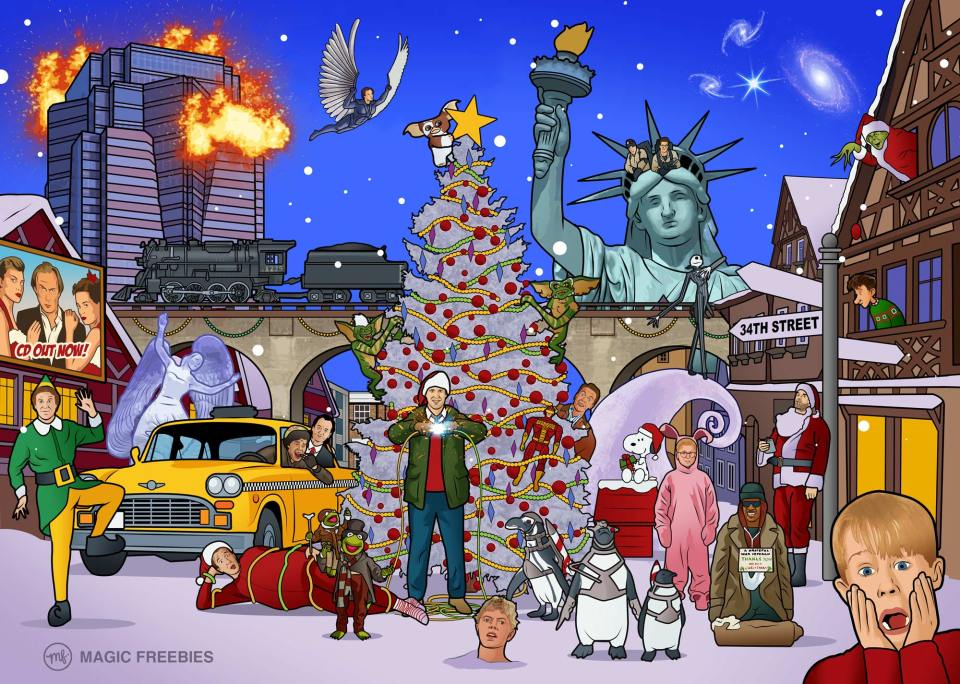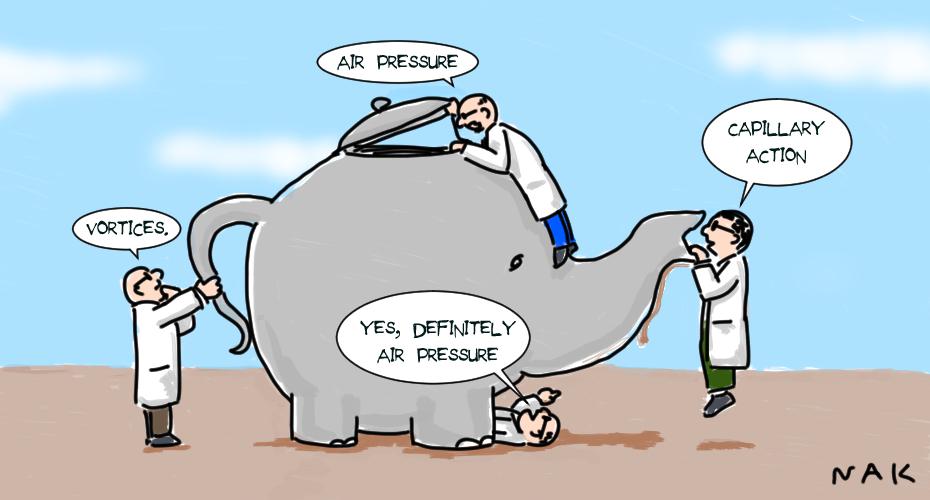“Two peoples divided by a common language” is a phrase often used to describe the differences between the Americans & the Brits. So how many of these American-English words do you know? Improve and test your (American) wordpower by matching each of the words below to one of the multiple possible definitions.
| Vocabulary Ratings | ||
| 14-15 correct | ………………….. | excellent |
| 12-13 correct | ………………….. | good |
| 9-11 correct | ………………….. | fair |
<b>(1) reversible</b> <i>n</i> <b>A:</b> lorry trailer. <b>B:</b> jacket that can be worn on both sides. <b>C:</b> baseball cap.B: jacket that can be worn on both sides. Latin re (back) and vertere (to turn).
|
<b>(2) lulu</b> <i>n</i> <b>A:</b> short skirt. <b>B:</b> remarkable person. <b>C:</b> exotic fruit cocktail.B: a remarkable person. Nineteenth century, unknown origin (perhaps a pet form of Louise).
|
<b>(3) chiffonier</b> {shiff-on-ee-ay} <i>n</i> <b>A:</b> hair gel. <b>B:</b> low cupboard. <b>C:</b> diamond.B: low cupboard. “I had a bed and a chiffonier in my room.” French chiffonnier (chest of drawers).
|
<b>(4) houndstooth</b> <i>n</i> <b>A:</b> lucky charm. <b>B:</b> term of abuse. <b>C:</b> checked jacket.C: checked jacket. From the checked pattern, with notched corners, reminiscent of a canine tooth.
|
<b>(5) checkers</b> <i>n</i> <b>A:</b> bankrupt. <b>B:</b> wild football player. <b>C:</b> game of draughts.C: game of draughts. From the checked pattern on the board.
|
<b>(6) muffler</b> <i>n</i> <b>A:</b> scarf. <b>B:</b> class bully. <b>C:</b> sports mascot.A: scarf. Old French moufle (thick glove).
|
<b>(7) hydrant</b> <i>n</i> <b>A:</b> hangover cure. <b>B:</b> street water outlet. <b>C:</b> legendary monster.B: street water outlet. “It got so hot in Greenwich Village that the kids opened up the hydrant.” Greek hudor (water).
|
<b>(8) Gladstone</b> <i>n</i> <b>A:</b> pompous student. <b>B:</b> hinged bag. <b>C:</b> long speech.B: hinged bag. “I packed two Gladstones and jumped on a bus to Newark.” From the Victorian prime minister. William Gladstone, noted for the amount of travelling he did during elections.
|
<b>(9) mitt</b> <i>n</i> <b>A:</b> lottery ticket. <b>B:</b> clothes moth. <b>C:</b> baseball glove.C: baseball glove. “The mitt leaves the fingers and thumb tip exposed.” Abbreviation of mitten.
|
<b>(10) canasta</b> {canaster} <i>n</i> <b>A:</b> card game. <b>B:</b> coffee pot. <b>C:</b> gambling obsessive.A: card game. “We played canasta until dawn came up over the Hudson.” Latin canistrum (basket).
|
<b>(11) galoshes</b> <i>n</i> <b>A:</b> thick trousers. <b>B:</b> waterproof shoes <b>C:</b> golf clubs.B: waterproof shoes. “His galoshes were made of rubber.” Latin gallicula (little shoe).
|
<b>(12) crew cut</b> <i>n</i> <b>A:</b> short haircut. <b>B:</b> exam failure rate. <b>C:</b> best rower.A: short haircut. ‘Elvis had a crew cut when he went into the army.’ From the 1940s haircuts worn by the undergraduate boat crews of Yale and Harvard.
|
<b>(13) flunk</b> <i>v</i> <b>A:</b> shout aggressively. <b>B:</b> fail an exam. C deep fry.B: fail an exam. Possibly derived from “funk” (a state of great panic).
|
<b>(14) crumby</b> <i>adj</i> <b>A:</b> teetering. <b>B:</b> delicious. <b>C:</b> of poor quality.C: of poor quality. Derived from “crumbly”.
|
<b>(15) phony</b> <i>n</i> <b>A:</b> terrible accident. B technology obsessive. <b>C:</b> fraud.C: fraud. “The guy showed off like a real phony.” Late 19th century (unknown origin).
|




